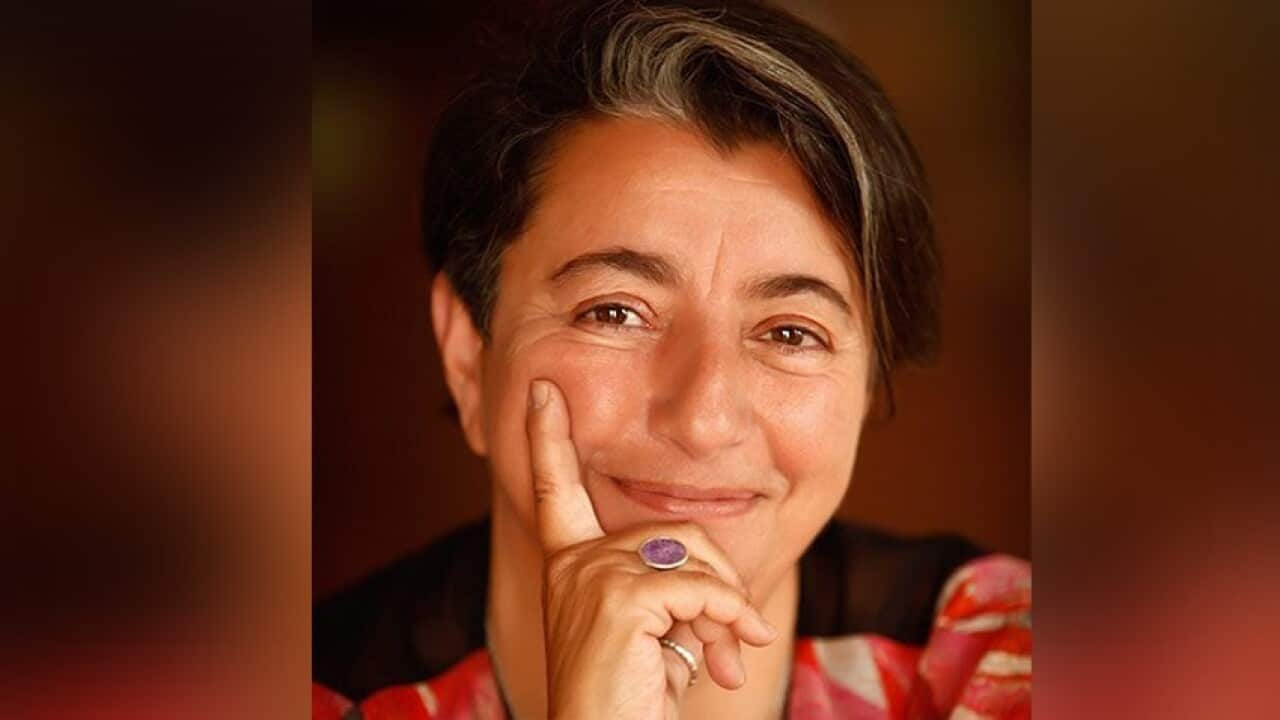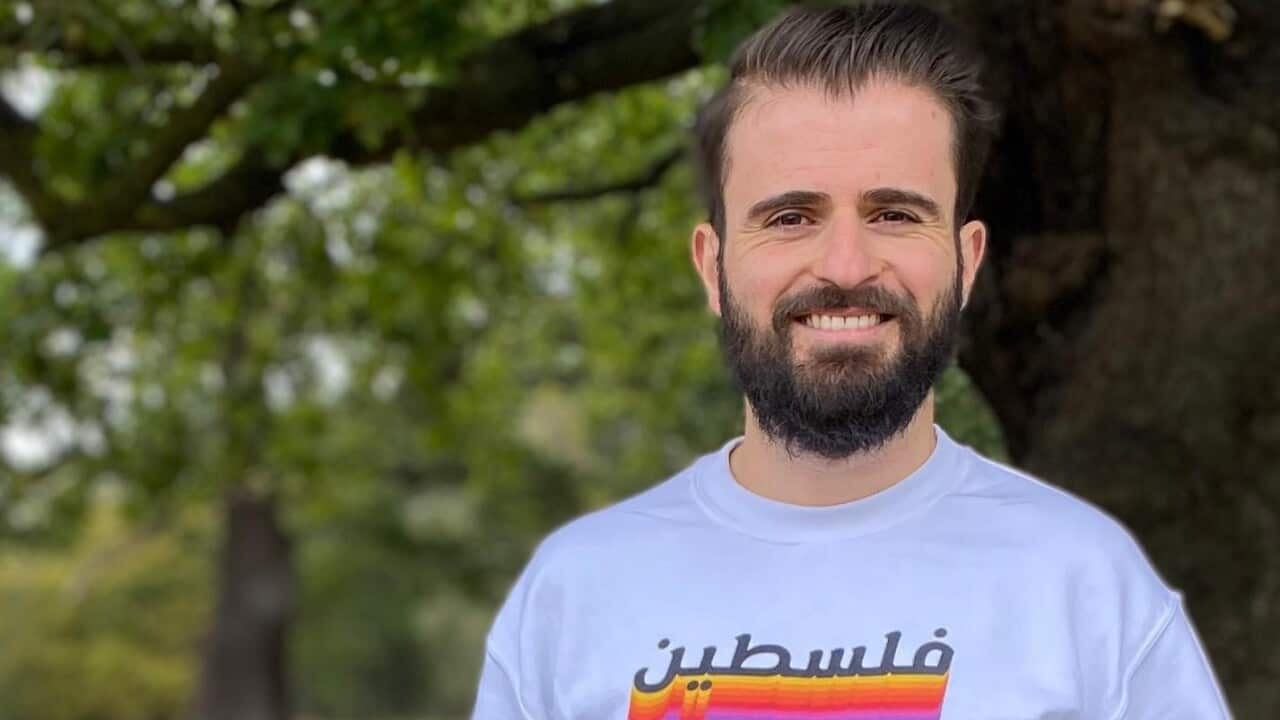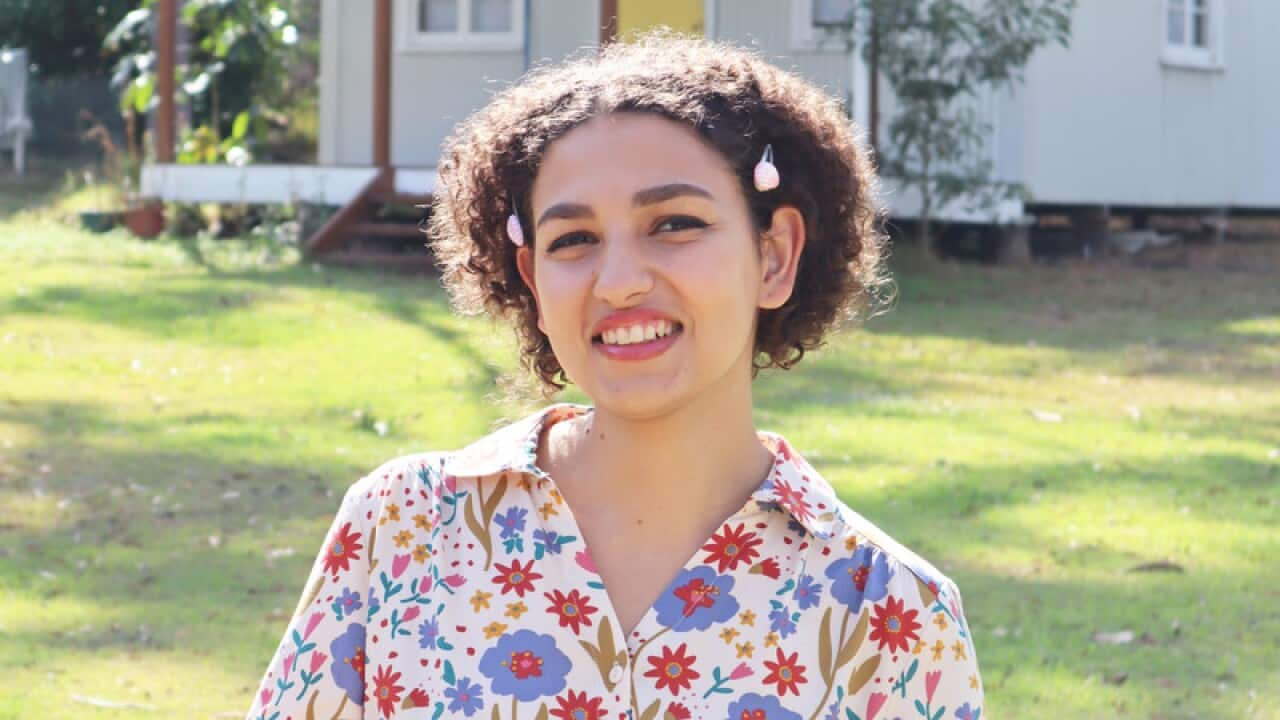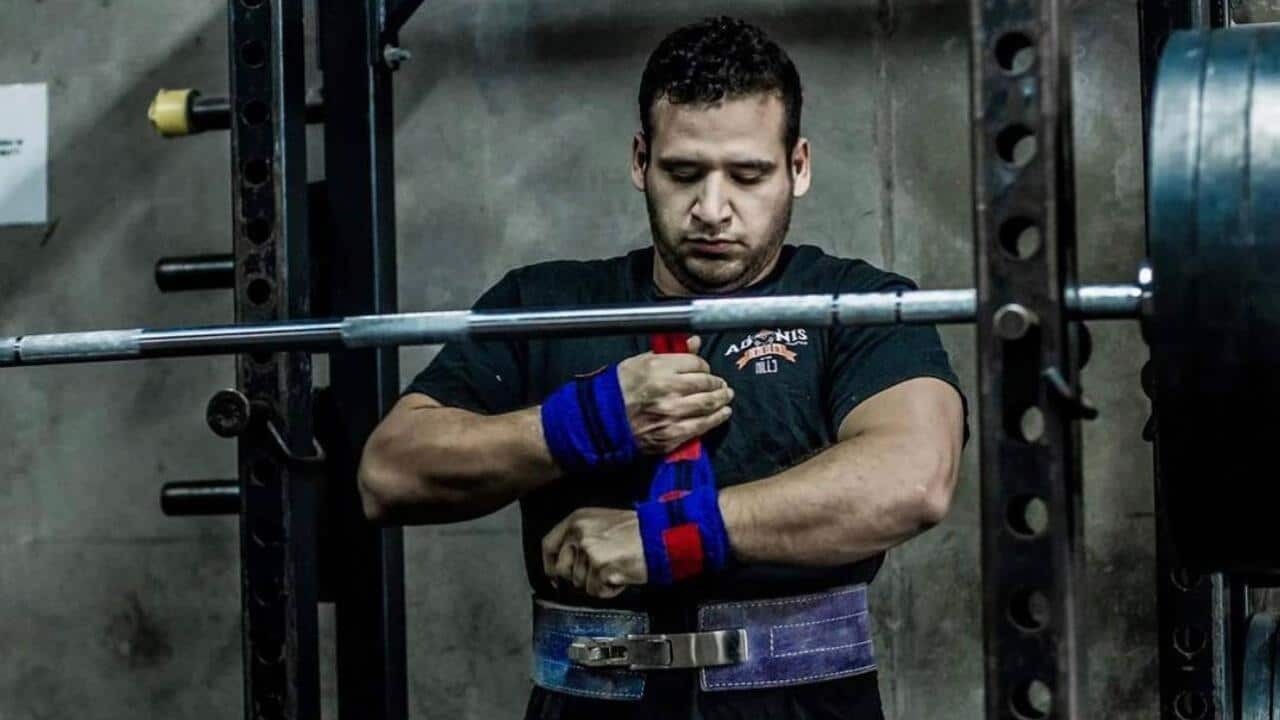“Of course, I have the privilege. People die in the Mediterranean Sea or the Pacific Ocean because they want a better life. I have this life that they are fighting for."
These are the words of Farid Farid, an Egyptian-Australian journalist and researcher now residing in Cairo.
His family left Egypt during the 1990s in search of job opportunities and a better future for themselves and their children. They had the United States in their sights.
However, Farid's father decided to change the plan at the eleventh hour.
“A friend of my father persuaded him to migrate to New Zealand instead. Indeed, our destination changed,” Farid told SBS Arabic24.
“I remember exactly the day we travelled. My sister and I were carrying our Egyptian textbooks on our backs, which were 12 kilograms. Our parents asked us to take them to continue our studies in New Zealand, so we don’t waste any schoolwork if we decide to return to Egypt."

Farid Farid with his friends at Mount Warning in Murwillumbah, NSW, 2005. Source: Farid Farid
New Zealand
The family arrived in New Zealand in January 1996. They set themselves up for a period of three months to adjust there, and if they were unable to do so, they intended to return to Egypt.
“Of course, we were sad and longing for our friends and family in Cairo. My parents migrated when they were in their 40s, they had a prominent social life in Egypt as doctors. The trip was not easy at first. We spoke a little English, but the biggest problem was with the New Zealand accent and all the new terminologies.
"I remember one day that my school was holding a huge sports day in a large stadium outside the school for all classes. I will never forget that I was the only one who went that day wearing my school uniform and did not wear the sports uniform because I did not understand what the word 'gear' means when I heard it."
Farid was able to find a place within the school community, and he said the accent issues he encountered did not prevent him from opening a channel for communication.
"I remember the day I felt well integrated in school. We were in the library and I and other students in the classroom, at that time I said a sentence, and I was trying to tell a joke at the same time. I said it and my classmates laughed. Then I felt that I could be myself and integrate into their community." Farid was fully aware of the effort made by his parents and the compromises they made to get out of Egypt and achieve their dreams in a faraway place.
Farid was fully aware of the effort made by his parents and the compromises they made to get out of Egypt and achieve their dreams in a faraway place.

Farid Farid with family members in Queensland. Source: Farid Farid
He had witnessed some of the bullying they faced that many migrants face too when receiving government benefits.
"I hate racism or bullying on people who get benefits from the government. We proudly took it and this is our right. We were still trying to stand on our feet. My parents sold everything they had in Egypt to make this trip for us and in order to invest in this country.
"I saw them struggle while they were working and studying to get their degree equivalent, which they obtained from a prestigious university in Egypt, which is not recognised internationally, and this is really insulting."
Farid and his family's attachment to the Arabic language, Egypt and its culture did not fade for a moment during this period.
Despite the distance between the countries, Farid and his family, in a short time, were able to find an Egyptian community around them.
"We transferred Cairo with its social life to New Zealand. Before this, the whole family entered into a wave of psychological problems. We could not cope at first. The city shuts down at 5pm. We did not have a social life and we did not have relatives. After that, our circle of friendships was limited to the church community."

Journalist Farid Farid Source: Farid Farid
Australia
When Farid was 18, the family began to feel that New Zealand had become tight around their ambitions. By chance, luck or fate, the family decided to migrate to the “land of opportunity”, Australia.
"This particular summer, every week two or three of my friends migrated from NZ. When my family decided to migrate to Australia, I was ready."
The family arrived in Queensland in 2002. Farid attended university there, completing a BA in political science and the French language. Then Farid felt, again, that Brisbane was too small for his ambitions.
"I travelled to Sydney in my early twenties for job opportunities, so that I could develop myself and feel independent.
"I got a scholarship from Western Sydney University to complete my postgraduate studies. There, I worked in all fields that opened up for me, including a security guard, a translator, a columnist in Australian newspapers and teaching at the university. In the end, I decided to work in journalism.”
Despite his achievements in the academic and journalistic fields, there was a view that triggered his disappointment and disturbed him more than any other type of racism against new migrants that he encountered.
"What hurts me most when someone made me feel that I was less educated or prestigious than what they see themselves, like someone telling me your English is really good, or I didn't expect you to be so tactful. As if they are the standard.”
Farid said he always felt different from the rest of his generation in Australia, such as the feeling of a gap that some new migrants might feel between themselves and established migrants and their children who were born in Australia.
"I was different from the rest of my generation, my generation that was born and raised in Australia who is not aware of or has nothing to do with what is happening in Egypt or the Arab world." With the eruption of the January Revolution in Egypt in 2011, Farid felt frustrated that he was in Australia and was unable to be there to be a part of it.
With the eruption of the January Revolution in Egypt in 2011, Farid felt frustrated that he was in Australia and was unable to be there to be a part of it.

Farid Farid featured in "My Arab Identity" podcast. Source: Farid Farid
"When the revolution exploded, I was interested in what was happening there. This is the nature of my work as well."
Egypt
He has a unique connection and affiliation with Egypt that did not disappear with the years away.
He said the credit goes to his parents, who worked hard to strengthen the bond between their children and their cultural roots. However, they never knew that the result of this would be a unique decision to leave them, leave Australia and return to live in Egypt.
"My presence in Australia during this period was the biggest regret I feel in my life so far. Because this was the most important period from 2011 and 2013 for me to be there and for anyone who wants to feel how Egyptian they are, also to be there in the midst of events in the Arab world and not only in Egypt.
"These thoughts affected me very much, and I began to wonder: Why am I here, in Australia? Australia is so far geographically from our Arab world. Indeed, excessive thinking about this pushed me to return and live in Egypt six years ago.
"Now I feel relieved, but I am fully aware that it is not an easy or a logical step either."
One of the most important reasons that prompted Farid to return to Egypt was to contribute to rebuilding a new country.
"I and others with different skills, engineers, doctors, journalists, artists and other professionals have returned to bring our developed thinking to our countries and the countries of our parents in order to spread this developed way of thinking to build a better society there.
"The revolution may be defeated, of course, it is clear that it was defeated politically. There are detainees in prisons, people who die and disappear, some of my friends, people I know personally. It is really painful, that I build a relationship with someone and suddenly I hear that he disappeared or died or was imprisoned.
"However, the only thing that we still cling to now and make us feel that the revolution has not been completely defeated is our feeling that society has changed because we can raise political, social, religious and philosophical issues in a way that no one could raise ten years ago."

Farid Farid Source: Farid Farid
The feeling of belonging to migrants and their children is a complex feeling that will not be the same from one family to another.
"I have to be frank; we will not be Australians. Some may be able to adopt a mixed identity as many people of the Arab world adopt mixed origins, such as Arab-Armenians and so on. But in the end, we will remain Arabs.
"Everyone has the right to migrate and forget the painful memories, of course, because the Arab world, with all its governments, has let us down.
"But in my personal experience, there is no such thing as 'I am an Australian', and that I will start a new blank page in my life after migration. Because the concept of being an Australian itself is not agreed upon. Australia is made up of about 200 nationalities, and most of them are Indigenous people."
Nevertheless, Farid does not deny the privilege of holding Australian citizenship and the privileges that Australia offers to its citizens. Despite not ruling out returning one day, he said he has a “unique feeling of belonging” to Egypt.
“I have been Egyptian all my life. Yes, I miss New Zealand, and I used to play rugby and support All Blacks. But my sense of belonging goes back to my family first, wherever they are and my friends and my identity is Egyptian of course, and I am proud of that."
Egyptian-Australian Farid Farid is a Cairo-based journalist and scholar. He lived in New Zealand, Australia and Germany. He has written for several Australian and international publications including The New York Times, The Guardian, Sydney Morning Herald, among others. His academic work has been published in journals such as Social Semiotics and Borderlands.








